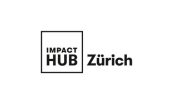
Juli 2016
Learnings from our #FutureOfEducation event
A rainy Monday evening and the old viaduct arch of Impact Hub Zürich is steadily filling with people interested in the future of education. During this influx of people, two people look at each other with a puzzled face: Lorenz and Beth are very surprised to see each other here. They actually met last year in Berlin. Lorenz is a teaching expert at the ETH and Beth is an online simulator working on alternative education formats. This “coincidence meeting” is actually not a bad chapter from some b-novel, but something that constantly happens at Impact Hub. Engineered serendipity, Impact Hub calls it.
Sharply at 7pm the event starts. Lorenz, Beth and the rest of the excited crowd can’t wait to get their questions answered. Which skills are required in the coming decades? What is expected of teachers? And how should educational programs and formats adapt? Impact Hub is a fitting setting to discuss these questions: a place where innovative ideas to ‘prototype the future of business’ are discussed and tested. Tonight four different speakers will share their perspective on the future of education. An established university, two innovative educational programs and a large company highlight what trends they foresee, and together with the crowd, they challenge the status quo and suggest ways to shape the future of academic education.
Business School Lausanne
First in line is Marina ‘I am heavily overeducated’ Curran, teaching at Business School Lausanne (BSL). She asked her students what their learning needs are. Brutally honest, they indicate they want their training to be practical and experiential and not theoretical. They are tired of sustainability as a buzzword covering up greenwashing and look for authentic approaches to ensure that all forms of life on earth can thrive. BSL has made radical changes in both their management structure and their curricula to adapt to future needs. As the only university in the world, they are organized through Holacracy, a new system for self-governance, thereby reducing the hierarchies between the staff and students. Sustainable development is included in all subjects and students still their intellectual hunger by continuously questioning the status quo. As an educator, Marina believes it is essential to help students understand where they fit in the world and what they need to reach that. The times where educators could simply share knowledge from a book definitely belongs to the past.
Kaospilots
Second, Matti Straub presents ‘Kaospilot’, a 3 year full-time educational program in Bern, focused on personal growth and change. For students to learn something meaningful, it requires them to step out of their comfort zone. “After all, the only person that can do your brainwashing is you!” At Kaospilots, it is encouraged to think global, but act local, learn by doing and through reflection. Nature provides students with inspiration and creativity. In a relatively safe environment, they can test their business-skills and are trained to become the entrepreneurs of the future.
STRIDE
Niels and Björn then present another alternative program for higher education: STRIDE, an Impact Hub spin-off employing a revolutionary learning philosophy. “You don’t need to attend 2-hour classes in which you are presented with information that you can simply google at home. You need to experiment, personalize your learning process, acquire knowledge as a meaning and not just as information. You need to learn ‘Knowledge you cannot Google’.” The one-year part-time STRIDE program takes learners along three different learning tracks: venture creation, personal transformation and collaboration building to enable students to navigate the unknown.
SwissRe
Finally, we hear Eva Haussmann sharing the thoughts from a prominent employer, SwissRe. Eva sees it as her mission to bring purpose (back) to SwissRe, both by changing the mindset of the employees, and the companies operation. SwissRe’s mission is to make the world more resilient and Eva believes it is possible to have a positive impact through a big employer. The company faces several learning challenges around risk. For example, there is no one single education program that employees can take to be able to understand catastrophes. Employees need to keep up their pace with this fast-changing world and that requires a mindset shift.
The audience, thrilled to share their own insights, then broke up in four discussion groups to challenge the speakers and share their own thoughts. Lorenz and Beth meet again and discuss their insights from this evening. Yes, in line with the skills the World Economic Forum proposes, the future of education should indeed train in complex problem solving, creativity, risk-taking, an entrepreneurial mind-set, emotional intelligence, cooperation and ability for critical reflection. Different educational programs and employers showed that they are aware of these trends and implement ways to prepare their students for the uncertain future.
It is 10pm, still raining, yet it is time to leave. Beth and Lorenz close the door of the Impact Hub with a smile. It was a great evening discussing with like-minded people about the Future of Education. Where will they meet next?!
***
This blog post was written by Hubonauts Monika Piessens and Valeria Superti. Monika works towards an improved access to and quality of education in Kenya and the Philippines, as COO of Aiducation. Due to technical limitations, we can only list Valeria as official author below, yet it has been a collective effort.
***
Newsletter abonnieren
Unser Newsletter erscheint alle 3-4 Wochen und stellt sicher, dass ihr nichts aus der Community verpasst.
-
Climate Community Membership
After 5 years of passionate climate action programs and events work at Impact Hub Zürich, we are launching the new...
-
Fondue Dinner im Kraftwerk im Januar 2024
Buche dein Event für den Jahresbeginn: ein Fondue-Dinner in 3 Gängen vor unserer einzigartigen Kulisse im Kraftwe...
-
Climathon Zürich 2023: Gemeinsam für Netto-Null
Am Climathon Zürich kamen rund 120 Menschen während 32 Stunden im Kraftwerk zusammen, um Lösungen für klimatisc...

